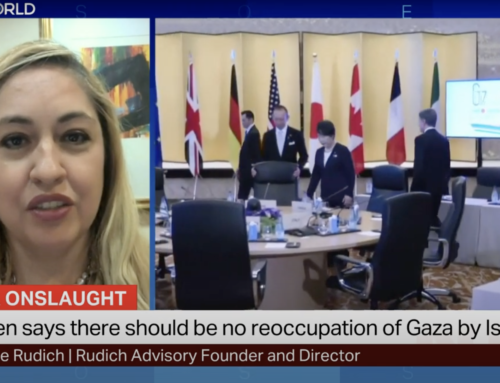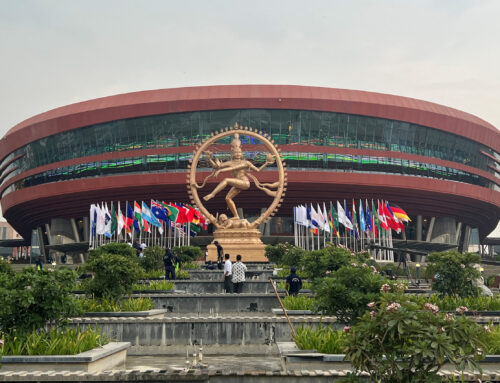G20 forges agreement on corruption, financial crime and crypto despite geopolitical tensions
Denisse Rudich and Dr. Tristen Naylor
The leaders of the world’s most significant economies assembled in Bali, Indonesia between November 15-16 for their annual G20 summit. They met amid political and economic upheaval: the Russian invasion of Ukraine, escalating tensions in relations between the United States and China, rampant inflation and slowing international growth made for a pessimistic backdrop to the summit.
Geopolitical upheaval
The G20 is no stranger to crisis, having first formed as a group of finance ministers in response to the economic crises of the 1990s and having been elevated to the leaders’ level in response to the 2008 financial crisis. What sets this year apart, however, is that G20 leaders found themselves in opposition to one another. In previous crises they were united in their response, steering economic governance through choppy waters.
The G20 members’ subscription to the Washington Consensus had previously served as the uniting set of principles that allowed them to act together on economic and financial issues, but no such set of shared values can unite them when at the heart of what divides them are political and ideological matters. This does not bode well for the G20, which now finds itself in an international situation increasingly defined by geopolitical contestation, rather than economic interdependence.
This is not to say that the G20 will be unable to achieve meaningful outcomes, only that the scope and scale of what it can agree on is limited and reduced in such a geopolitical context. As the Bali summit’s final communique indicates, the G20 can continue to govern at the technical and regulatory level. Indeed, the G20 agreed a number of high-level commitments to tackle corruption and financial crime, in response to which firms will need to take practical steps. Moreover, the G20 was able to forge agreement on commitments relevant to the crypto industry.
Zero tolerance for corruption
G20 leaders acknowledged the need to offset corruption across all sectors, linking corruption to the worldwide recovery effort. It issued commitments to enhance legal mechanisms to fight corruption more effectively, promote public-private partnerships and strengthen the denial of safe haven for the assets of corrupt foreign officials. G20 leaders pledged to boost engagement with — and promote the participation of — civil society, academia, media and the private sector to promote integrity.
Leaders issued calls on countries to criminalise bribery of foreign public officials and indicated that they would strengthen legal and regulatory frameworks to fight corruption linked to money laundering and organised crime.
Firms should ensure that they screen for corruption as part of adverse media searches as well as carry out and/or update financial crime risk assessments to take account of corruption risk. They should also engage with members of civil society and investigative journalism consortia that unveil corruption on a grand scale. They should review reports, pull out key identifiers and screen these against customer and transaction data. Where suspicious behaviour activity and transactions are indicative of corruption, firms should submit suspicious activity reports.
The G20 further highlighted the role of independent audits in “better ensuring integrity, accountability and transparency, particularly in sound financial management” to fight corruption. Firms should ensure that when they are financing big public sector projects they review audit reports as part of enhanced due diligence, particularly when dealing with higher-risk countries or countries with high levels of bribery and corruption as identified by sources such as Transparency International’s Corruption Perceptions Index.
Firms may also wish to request copies of audits of anti-corruption systems and controls, particularly when dealing with large commodity traders or public infrastructure firms that work with governments in higher-risk countries.
FATF AML/CFT priorities
G20 leaders reaffirmed their support for the Financial Action Task Force (FATF) and FATF-style regional bodies in their efforts to improve the effectiveness of efforts to tackle money laundering, terrorist financing and proliferation financing. They pledged to help deliver strategic priorities, particularly in issuing anti-money laundering/counter-financing of terrorism (AML/CFT) standards for virtual assets.
They also agreed to take steps to solve challenges connected with the “travel rule”, promoting transparency of beneficial ownership, and seizing criminal assets and repatriating funds to victims. The G20 further cited the role of the FATF in fighting environmental crime and endemic corruption, highlighting areas of focus.
Crypto-asset firms should ensure that they have in place adequate AML/CFT programmes to manage risks of money laundering and regulatory risks. The travel rule has not been implemented, but firms should plan how to comply. This might include the assessment of technology solutions or, where there are low volumes of transfers, looking at developing a manual solution.
All regulated firms should ensure that they review the FATF’s paper on environmental crimes, wildlife crimes and laundering the proceeds of corruption, and identify risks and typologies that apply to their operating environment and client base. Firms should update risk assessments, policies and procedures and staff training and awareness materials to ensure that suspicions of environmental, wildlife and corruption crimes are being reported.
Tax, financial stability and crypto
A major new initiative supported by G20 leaders is the Crypto-Asset Reporting Framework developed by the Organisation for Economic Cooperation and Development (OECD). This framework promotes tax transparency and automatic exchange of information on crypto asset transactions.
Firms that process crypto-asset transactions will need to update their internal policies and procedures to extend the work completed to comply with the U.S. Foreign Account Tax Compliance Act (FATCA) and other tax compliance measures applicable to crypto-assets. This may also require training to ensure that individuals are able to identify and report suspected tax evasion and the laundering of such funds.
Given the recent collapse of FTX, which cost investors and led to the loss of more than $150 billion, a portion of the leaders’ communique focused on the need to manage financial stability risks associated with crypto-assets and stablecoins. This includes through “robust regulation, supervision and oversight” and an international regulatory framework for crypto. Crypto firms will therefore be subject to more stringent oversight and regulation beyond AML/CFT.
Firms that have crypto exchanges and providers of crypto-asset services should ensure they are carrying out appropriate enhanced due diligence at onboarding to ensure that AML/CFT policies and procedures are fit-for-purpose, as well as carrying out a risk assessment and ensuring that they have suitably qualified senior personnel running their compliance departments.
They should also review governance arrangements and processes such as enterprise risk management and business continuity procedures to assess the organisation’s ability to respond to risk incidents and black swan events.
In recent days, it has come to light that FTX has been hacked and funds have been moved using on and off-chain transactions. Firms must remain vigilant for unusual activity and transactions, particularly with customers looking to convert unusual amounts of crypto to fiat in quick succession.
Originally published by Thomson Reuters on 30 November 2022.





